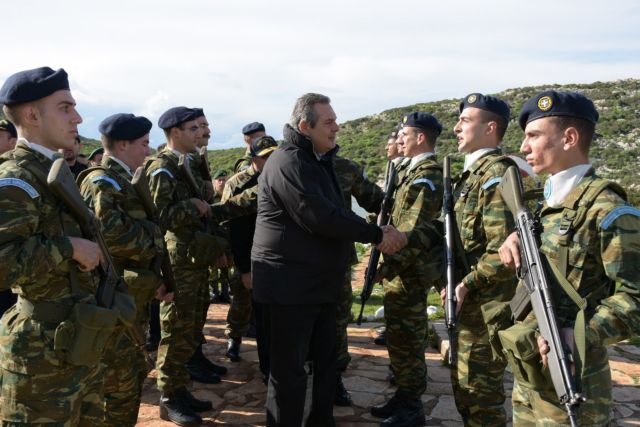The history of Turkish provocations and violations is neither new nor uncommon.
Until now, the Greek side naturally responded to these actions with diplomatic interventions, with calm statements, without cries and without easy slogans.
For the first time, over recent days we witnessed the defence minister – who is known for his brazenness – competing with the militarists in Ankara with constant statements which raise many questions regarding his motivations.
It is noteworthy that for the first time Greece’s Chairman of the Joint Chiefs of Staff vied with the minister in terms of the tenor of his statements, triggering an analogous reaction from Turkey.
The defence minister does not speak as the leader of his crumbling national-populist political party, but as the representative of the government and of the country.
Until now, Greek governments did not participate in the game of provocations and refused to adopt the aggressive rhetoric of confrontation.
Now, with an ostensibly left-wing party in power, its junior coalition partner and defence minister is playing the neighbourhood tough, fueling from the Greek end dangerous tensions with a regime that functions unchecked, without democratic rules, and with no ovsersight.
It is unacceptable in a democratic country for the political chief of the armed forces, who has a duty to defend national interests, to be drawn into a climate of dangerous sabre-rattling, indifferent to the repercussions.
Such a tack is much more dangerous when it is adopted by the top military brass, which instead of engaging in a show of force is obliged to calmly and decisively ensure the readiness of the armed forces, especially since after the 1976 Imia crisis everyone knows where such sabre-rattling can lead.
Greece has paid very dearly in the past for various aspiring military Marshals who poisoned society with easy pronouncements and practices.
If the defence minister is of unsound mind and if he cannot comprehend his role and his duties, someone must remind him.
It is unacceptable for the prime minister, because he depends on his junior coalition partner’s support, to remain quiet and to let him act unchecked, allowing him to create situations that endanger the country’s security.



